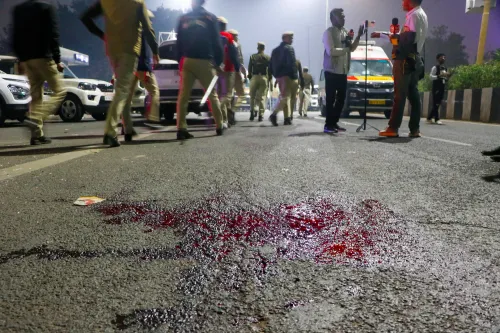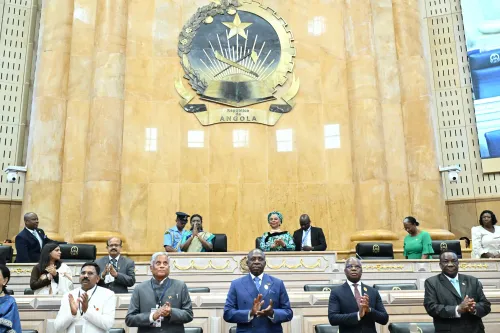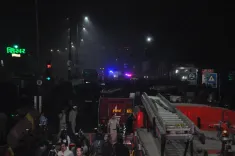Why is the US Government Being Asked to Explain the Detention of an Indian Academic?

Synopsis
Key Takeaways
- Federal Judge demands answers from the US government.
- Concerns over alleged links to Hamas complicate the case.
- Legal proceedings are raising questions about immigration policies.
- Growing support for Suri from various community leaders.
- Implications for academic freedom and civil rights.
New York, May 2 (NationPress) A federal judge has granted the US government just one day to provide explanations regarding the detention of an Indian scholar whose deportation has been temporarily halted. Judge Patricia Tolliver Giles mandated that government attorneys clarify why Badar Khan Suri was transferred from a Virginia detention center, where he resided, to facilities in Louisiana and Texas following his arrest in March.
The immigration authorities are seeking to deport him based on allegations of his connections to Hamas, an organization labeled as a terrorist group by the US.
Suri is currently a postdoctoral fellow at Georgetown University in Washington, D.C.
During a hearing where Giles previously halted his deportation, she listened to Suri’s legal team appeal for his return to Virginia and a stop to his deportation.
The government wishes to relocate his deportation case to a court in Texas, where he is currently detained. Suri’s lawyers express concerns that he might face a higher risk of deportation in Texas due to the courts there being perceived as more conservative and potentially sympathetic to the government’s position.
Giles questioned the overcrowding claims in the Virginia detention center that justified his transfer to a Texas facility, noting that he was allocated a cot in a TV room there while having previously enjoyed a private room in Virginia.
She inquired, “Is it standard procedure to transfer detainees like this in the middle of the night?”
Suri holds a PhD from Jamia Millia Islamia in New Delhi and was teaching a course entitled 'Majoritarianism and Minority Rights in South Asia' at Georgetown University.
He is married to Mapheze Saleh, an American citizen, whose father, Ahmed Yousef, was an advisor to the Hamas-led administration in Gaza, forming a perceived link to Hamas from the government’s perspective.
Tricia McLaughlin, Assistant Secretary of Homeland Security, has accused Suri of spreading “Hamas propaganda and inciting anti-Semitism through social media.”
Support for Suri has surged, including endorsements from several Jewish leaders who publicly expressed their backing.
During the court proceedings in Alexandria, supporters rallied outside, advocating for his release.
Representative Don Beyer, a Democrat from Virginia, addressed the demonstrators, stating, “It is Kafkaesque when someone can be taken without justification, without acknowledgment, and without charges.”
The Trump administration had announced a pause on the deportation of students caught in the net for minor offenses, but it appears this does not apply to individuals already facing deportation proceedings like Suri.
On Wednesday, a judge in Vermont ordered the release of a Palestinian student with a green card who had led an anti-Israel protest at Columbia University, pending a final decision on his case.









